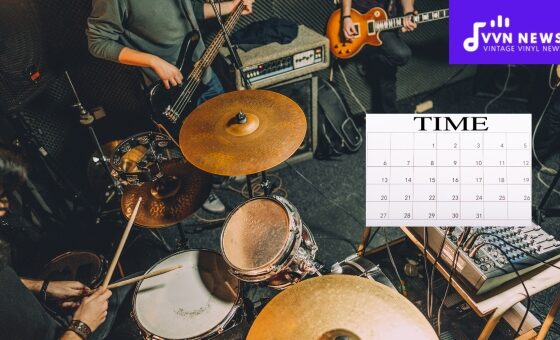As a music lover, I’ve always been fascinated by the various roles and jobs that contribute to creating a piece of music that we all enjoy.
One role that often goes unnoticed yet plays a highly pivotal part is that of a session musician. So, what is a session musician?
They are masterful artists hired to perform during live performances or recording sessions.
Unlike band members, these musicians are not permanent members of a band or musical group but are more like musical mercenaries – contributing their talents on a contractual basis.
When I first discovered the term “session musician”, I was immediately intrigued by its uniqueness and significance behind the scenes.
These wondrous people delve into numerous genres and sounds – they might be playing jazz on a sultry Saturday night in downtown New Orleans and then recording country tracks on a laid-back Tuesday afternoon in Nashville.
The versatility and adaptability of their craft are genuinely remarkable, putting their mark on countless tracks while remaining largely unrecognized by the casual listener.
What is a Session Musician?
A session musician, or a studio musician, is a professional musician hired to play in recording sessions or live performances for artists, bands, or record producers.
They are skilled musicians who can quickly learn and play various musical styles and genres.
Session musicians are often proficient in multiple instruments and strongly understand music theory.
They are typically hired for their technical proficiency, versatility, and ability to enhance the sound of a recording or live performance.
Session musicians may be hired per project or work as part of a larger team in a recording studio.
Also Read: What Does A Music Librarian Do? [Career, Education & Salary]
Role of a Session Musician

A session musician’s foremost role is to bring their musical expertise and creativity to a recording or performance.
Their responsibilities extend beyond just that. Here is what they do in detail:
Performing in Studio Recordings
The most common perception of a session musician is one who spends most of their time in the studio.
With access to top-notch equipment, they truly shine in this setting – playing precisely and skillfully while maintaining perfect timing and intonation.
Performing Live
Session musicians are not confined to the four walls of a recording studio.
They also perform live for concerts, tours, TV shows, weddings, or parties.
They create an exciting atmosphere here, stimulating the audience with their well-rehearsed renditions.
Arranging Music
Often, session musicians pull double duty as music arrangers. Drawing upon vast knowledge and experience in music theory and composition techniques, they arrange pieces better to fit the voice or style of an artist.
Session Preparation
Before any recording starts, session musicians must thoroughly prepare – this may involve learning new pieces of music, memorizing sheet music, or practicing specific techniques or sounds.
By fulfilling such diverse roles within the industry, these musicians embody versatility – always ready to adapt their skills according to project needs.
Also Read: What Does A Music Therapist Do? [Skills, Career And Salary]
Skills and Qualities of a Session Musician
The list is quite extensive when it comes to the distinct skills and qualities that make for a successful session musician. Let’s delve into them.
Technical Proficiency
The first attribute that comes to mind when discussing session musicians is sterling technical proficiency.
Session musicians are expected to perform flawlessly under pressurized recording conditions or live performances.
Having exceptional instrumental abilities and a profound understanding of musical theory is paramount.
This enables them to interpret and execute music pieces precisely and passionately.
Adaptability and Versatility
The second essential quality is adaptability. A session musician might be called upon to play different genres quickly–one day, it could be pop, and the next might be blues or country.
This means they have to be versatile in their playing styles and techniques. They should be comfortable strumming out a rock ballad just as much as playing jazz riffs on a saxophone.
Ability to Read Sheet Music and Charts
Another often-underestimated skill is the ability to read sheet music. Although not all musicians rely on sheet music, reading traditional notation, chord charts, or number charts can make you more valuable in a studio setting where time is equated with money.
Strong Musical Instincts
Strong musical instincts may seem like an abstract concept, but a seasoned session musician should intuitively know when to lay low or shine during a performance.
Balancing individuality and blending techniques while maintaining the proper dynamics can help enhance the overall sound instead of overpowering it.
Collaborative Mindset
Having a collective mindset is essential for any session musician.
Being easy to work with and respectful of others’ opinions and objections can foster harmonic relationships- not just musically but also personally, with various artists, producers, or band members.
Being a session musician requires more than just musical talent. It’s about developing a masterful grasp of the various musical genres, combined with the capability to collaborate and alter one’s playing style per the demand of the ensemble or musical piece.
Whether you’re a seasoned professional or an aspiring musician, mastering these vital skills could make you invaluable in music.
How to Become a Session Musician?

Becoming a successful session musician is no small feat. It requires immense dedication, skill, and perseverance.
Here, we break down the process into five main steps:
Master Your Craft
The foundational requirement for any proficient session musician is having exceptional musical talent.
Playing an instrument—or several—is an excellent start. However, technical mastery alone isn’t enough; you must be intimately familiar with your tools and understand how they fit into different musical landscapes.
Expand Your Musical Understanding
Session musicians frequently play various music—from jazz to country, from pop to classical—sometimes all in the same week!
So, you must expose yourself to as many genres as possible and develop an understanding of their unique intricacies.
Versatility and adaptability are the names of the game here. The more you know about different music styles, the more employable you become.
Learn to Sight-Read Music
Many recording sessions require you to sight-read music—that is, accurately playing a piece of music upon first sight. This skill will set you apart and open up many opportunities within the industry.
Sight-reading primarily involves practice, but resources like MusicNotes can offer helpful tools and exercises.
Develop Studio Etiquette
Studio sessions can be incredibly high-pressure environments with costly studio time ticking away every minute.
Proper etiquette ensures that sessions run smoothly and efficiently—this includes being punctual, prepared, patient, flexible, and, above all else—professional.
Remember to communicate effectively in all interactions – from directors or producers to sound engineers or fellow musicians.
Networking
Like many industries, the world of session musicians thrives on connections—through past collaborators or friends in the industry, sometimes even through social media platforms.
Attending industry events and joining musician forums will help build your network.
LinkedIn is a great platform to connect with industry professionals and build relationships—Additionally, websites like Soundbetter link musicians with producers who need session artists.
Becoming a session musician takes an undeniable passion for music and a continuous dedication to hone your craft.
While it’s important to take your work seriously, it’s equally significant to enjoy the process. After all, making music should bring joy and inspire creativity!
Session Musician Jobs
As a session musician, the range of jobs you might find yourself doing is immense and varies greatly.
You might be asked to play in a recording session for an indie band’s new album, back up a well-known artist on a world tour, or even contribute to a film score.
Other times, you could be recording tracks for commercials or video games. The beauty of this job is in its diversity – every day and every project can bring something new.
How Much Does A Session Musician Make?
The salary of a session musician can vary widely and is typically influenced by factors like the scale of the project, the caliber of the musician, the location, and, most importantly – whether it’s a live performance or a studio recording session.
According to the Bureau of Labor Statistics, as of May 2019, musicians and singers earn a median wage of $30.39 per hour.
Top session musicians can command much higher rates. Notably, this field is primarily comprised of freelance work, with payment often given per gig rather than as an annual salary.
Remember that while pay can fluctuate significantly in this industry, many musicians see value beyond monetary compensation – from developing their versatility across different music genres to networking with other professionals in the field.
For many artists, these perks make the journey well worth it despite occasional financial uncertainty.
Also Read: What Does An Ethnomusicologist Do? 2025 [Careers & Salary]
FAQs About Session Musician
How does a session musician differ from a regular band member?
A session musician is hired only for specific projects or performances, unlike regular band members who are constantly involved in the band’s activities.
Can a session musician hold other roles in the music industry?
Yes, many session musicians double up as music teachers, concert artists, or composers.
What are the essential skills a session musician should possess?
Besides technical expertise on their instrument(s), the ability to sight-read music, versatility across genres, and collaborative skills are crucial.
Do all professional musicians work as session musicians at some point?
Not necessarily. Although many gain experience working as a session player, others may start and remain exclusively in bands or solo careers.
Are there any famous musicians who started as session players?
Absolutely! For instance, Jimmy Page was originally a sought-after session guitarist before founding the legendary rock band Led Zeppelin.
Conclusion
The role of a session musician is often colorless within the vibrant palette of the music industry.
Yet, their invaluable contribution often breathes life into countless tracks. While they may not bask in the spotlight, session musicians are the unsung heroes with unmatched versatility and technical proficiency.
As a music lover, understanding and appreciating the role of these musical chameleons surely elevates our music-listening experience.
So next time you hear an enchanting solo or an intriguing instrumental section in a song, remember there might be a session musician performing behind the scenes.








